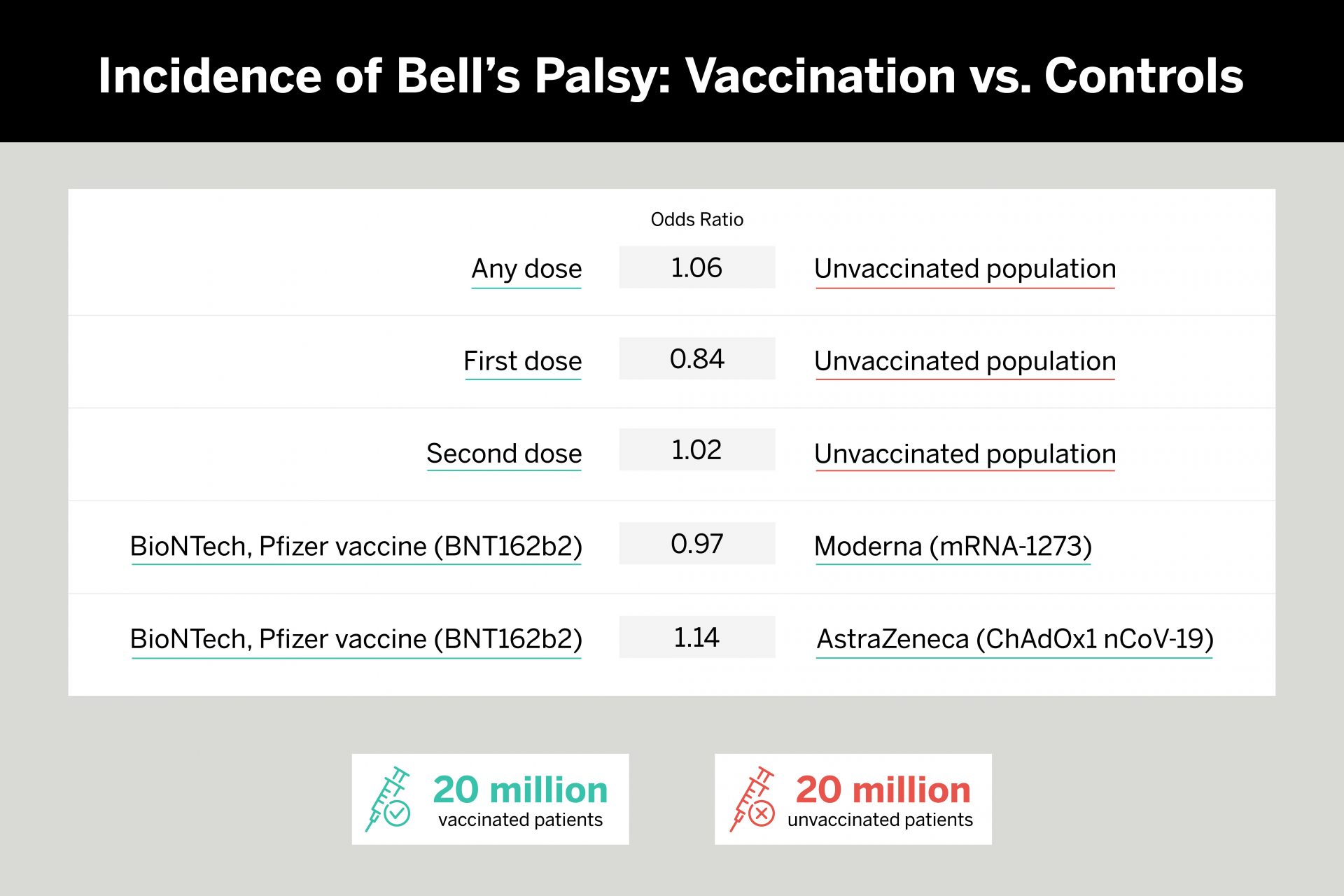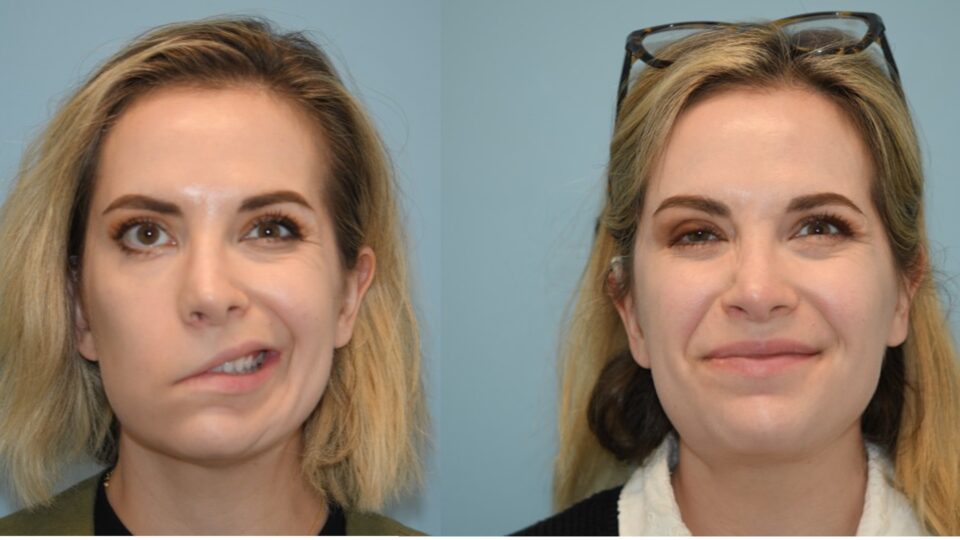Soon after the arrival of effective vaccines for the COVID-19 virus, a few patients reported Bell’s palsy or similar forms of facial paralysis on sites like the CDC’s Vaccine Adverse Event Reporting System (VAERS), which collects raw data for further analysis into whether any correlation may point toward causation.
Initial studies suggested that no link existed between the paralysis and the vaccines, but researchers hadn’t assembled and analyzed clinical data from large cohorts to provide a more definitive answer.
In a systematic review and meta-analysis published in the journal Otolaryngology—Head and Neck Surgery, NYU Langone Health researchers have now shown from a pool of more than 20 million vaccinated patients that there is no association between Bell’s palsy and COVID-19 vaccination.
“We’ve done a thorough investigation and we can confidently tell patients that there is no increased risk for paralysis.”
Danielle Eytan, MD
Facial plastic and reconstructive surgeon Danielle Eytan, MD, the paper’s senior author, specializes in treating facial paralysis and sees many patients with Bell’s palsy and similar conditions.
“I would get a lot of patients coming in and asking me if they should get the vaccine because they were worried about a potential link to the paralysis,” she says. “They were really fearful about it and I wanted to be able to give them a clear, evidence-based answer. That’s what prompted us to look into the question further.”
A Reassuring Finding for Patients
Dr. Eytan and two colleagues included every study around the world with more than 10,000 research subjects and compared the incidence of facial paralysis after vaccination with the incidence in unvaccinated control populations. In all, seven studies yielded a combined pool of more than 20 million vaccinated patients compared to an equivalent number of unvaccinated counterparts.
Regardless of whether the patients received one or two doses, and whether they received a vaccine made by Moderna, Pfizer, or AstraZeneca, the researchers found no significant difference in Bell’s palsy rates compared with the general population.
“The patients are curious: is one vaccine better than the other? There’s no concern there from what we found,” she says. “In fact, unvaccinated individuals who got the COVID-19 virus itself had a higher risk of Bell’s palsy compared to those who were vaccinated.” If anything, then, vaccination appeared to provide protection from the facial paralysis.
With the study results in hand, Dr. Eytan has been able to reassure her patients that they shouldn’t fear vaccination. “We can now also remind them that the risk for paralysis is actually even greater if they do get COVID-19,” she says.
The message is the same for physicians, she adds: “The evidence is there. We’ve done a thorough investigation by looking at millions of given vaccines and we can confidently tell patients that there is no increased risk for paralysis.”






